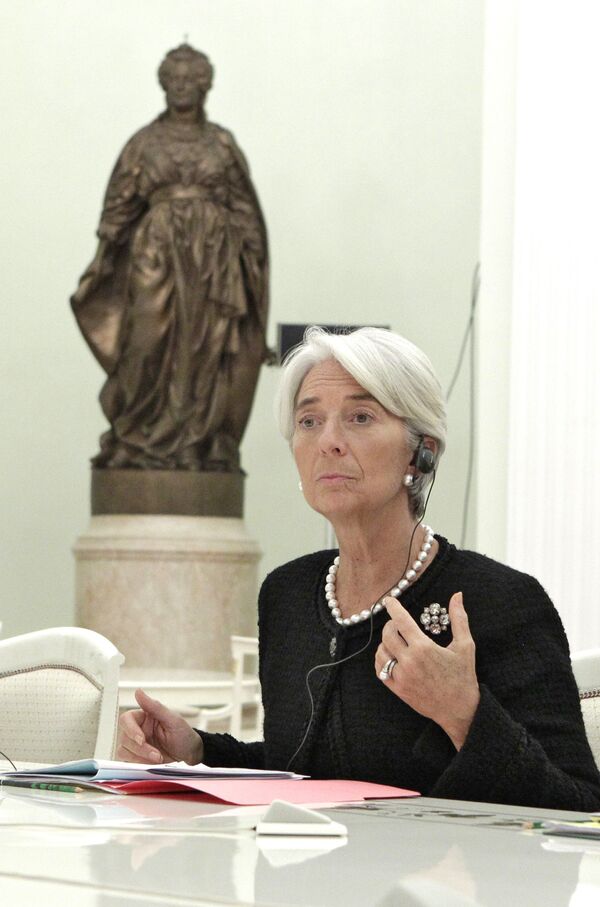The visit by International Monetary Fund chief Christine Lagarde to Moscow may boost Russia's role in international efforts to stabilize global finances and tackle the eurozone debt crisis, analysts said on Monday.
Lagarde started her three-day visit to Moscow with a meeting with Russian President Dmitry Medvedev on Monday to discuss measures to overcome negative trends in the global economy and further steps to reform the world financial system and the IMF.
Her trip is the first visit by an IMF managing director to Russia in the last seven years and comes after a summit of the G20 Group of advanced and emerging market economies in Cannes on November 3-4.
"The most important thing for Russia now is to strongly emphasize the need to redistribute the IMF voting quotas in favor of BRICS countries while for the IMF it is important to secure the support of developing countries in global economy stabilization," Investcafe analyst Grigory Birg said.
Russia is currently well-placed to play a greater role in the global economy, TKB Capital analyst Sergei Karykhalin said.
"Today Russia is in a fairly good position as compared with other countries. We don't need any financial assistance from the IMF and, on the contrary, can help the IMF. For the reasons of improving its image globally, Russia may meet the IMF halfway and increase, in particular, its contribution to the IMF," he said.
Russia, which borrowed heavily from the IMF in the 1990s until it was forced to declare a default on its external obligations and devalue the ruble in 1998, has been able to repay most of its foreign debt in the mid-2000's and is currently ready to offer up to $10 billion to the IMF to help Europe tackle its sovereign debt crisis.
"Russia has quite good financial resources, which the IMF can use for stabilization, especially considering that the situation in the global economy may deteriorate in a longer term and the IMF will have to respond more actively. For Russia it will be important to stress that it is expanding its contribution in exchange for a larger number of votes in the future," Birg said.
During her stay in Moscow, Lagarde will also hold talks with officials of the Russian Finance Ministry and the Central Bank.
At a lecture in Moscow after her meeting with the Russian president, the IMF chief said that Russia was playing a greater role in the world economy along with other emerging market countries.
“We gradually see countries, such as Russia, such as China, Brazil and India, actually play a larger role and, therefore, claiming legitimately more space at the table…and this shift will continue and Russia is part of it,” she said.
Lagarde also said that Russia with its vast potential could play the role of a bridge between Europe and Asia.
At the same time, Russia is still heavily dependent on oil and raw materials and needs to diversify its economy, she said.
Lagarde said Russia should pay attention to non-energy revenue deficit and non-energy inflation, in particular.
“In those circumstances it seems to us that the key priority must be to rebuild fiscal buffers while oil prices are still high,” she said.


